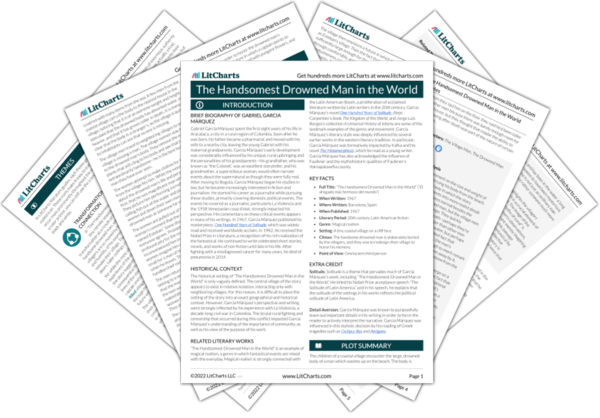The Village Women Quotes in The Handsomest Drowned Man in the World
As they were doing that they noticed that the vegetation on him came from faraway oceans and deep water and that his clothes were in tatters, as if he had sailed through labyrinths of coral.
They thought that if that magnificent man had lived in the village, his house would have had the widest doors, the highest ceiling, and the strongest floor […] They thought that he would have had so much authority that he could have drawn fish out of the sea simply by calling their names and that he would have put so much work into his land that springs would have burst forth from among the rocks so that he would have been able to plant flowers on the cliffs.”
The more stubborn among them, who were the youngest, still lived for a few hours with the illusion that when they put his clothes on and he lay among the flowers in patent leather shoes his name might be Lautaro. But it was a vain illusion.
At the final moment it pained them to return him to the waters as an orphan and they chose a father and mother from among the best people, and aunts and uncles and cousins, so that through him all the inhabitants of the village became kinsmen.
While they fought for the privilege of carrying him on their shoulders along the steep escarpment by the cliffs, men and women became aware for the first time of the desolation of their streets, the dryness of their courtyards, the narrowness of their dreams as they faced the splendor and beauty of their drowned man.












